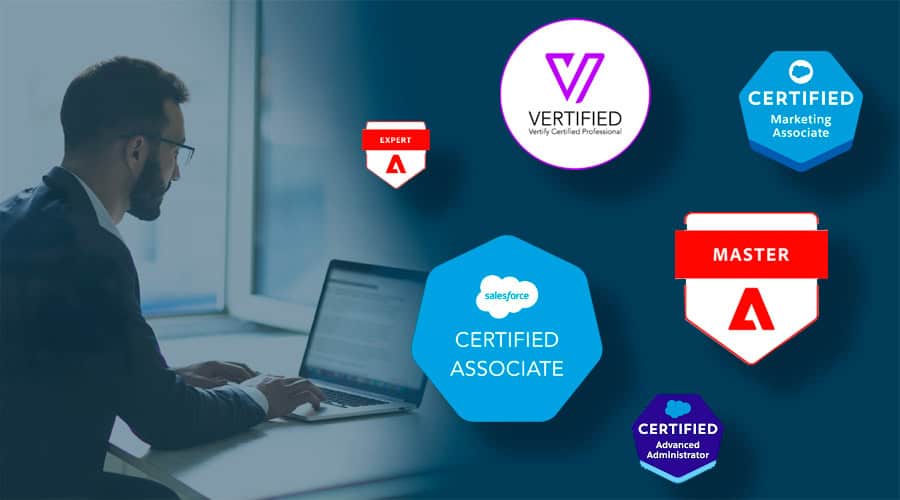
When you see that someone is certified in a given platform on LinkedIn, what’s your first thought? To some, certifications may be seen as a stamp of approval obtained after breezing through a simple course online (in other words, meaningless). However, to others, such validation might be the very reason why they choose to work with that person over another. Which end of the spectrum reflects reality?
In today’s landscape, the value of certifications has evolved. Whether these certificates prove technical chops or influence important decisions, they can signal a lot more than textbook knowledge or attendance in a course. Here’s why.
Certifications as a Shortcut to Trust
While there may have been a time when getting certified in a particular platform required little effort, that’s no longer the case with all the major players. For example, becoming a Salesforce Admin can take anywhere from 60 to 100+ hours, depending on existing exposure to the platform and a person’s learning style. That’s not a light lift; rather, it’s a major investment of time and energy.
Because of the intensity and time required to become certified today, professionals who have completed that course of action are taken seriously in implementation and strategy conversations. You don’t have to ask them a list of questions to ascertain their knowledge on the platform at hand; you already know they have verified, hands-on experience with the platform. This positioning as an expert builds immediate credibility and shortcuts trust, leading to faster action and time to value.
Evolving Platforms Demand Ongoing Education
Certifications did have value in the past, but they have significantly more today, as technology is not only more powerful and complex than ever before but also changing every day. In order for someone to get certified, they have to undergo comprehensive training–and then continue to take courses and get hands-on experience to stay on top of evolving systems.
Marketing Operations (MOps) solutions have gone beyond basic automation and are trending toward greater breadth. As such, modern certifications require that professionals know how to manage software administratively, as a developer, and through a strategic lens. If a company brings in an external consultant or agency to help them set up, run, and optimize a comprehensive system, a certification will quickly tell them that this person can handle it.
Certification, Experience & Leadership
It should go without saying that while getting a certification is a gold standard, it’s not enough on its own. Once someone is certified, they also need to garner experience using the system to understand it and know how to manage others executing it. Additionally, certification leads to higher-impact roles and shows commitment to your trade. If you want to succeed in a career in MOps, getting certified in key solutions is absolutely essential.
Another benefit of having a certification is that it helps you to translate the technical work into business value across teams. This gives you the language and framework to bridge the gap between strategy and execution, a critical skill in any organization.
In Closing
Certifications aren’t the only way to measure whether someone is qualified in a given system, but they do carry a lot of weight, especially in MOps. If you lead a team or are on the practitioner side, it’s important to take certifications seriously and see them for what they are: valuable tools that signal your dedication, fluency, and credibility in an area–and open doors to greater influence, smarter collaboration, and opportunities to lead with confidence.